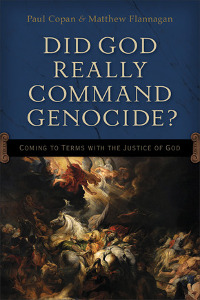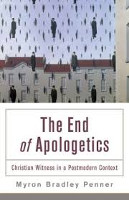I know, nobody has to take my advice. But I think there needs to be more of a discernment process that people (usually guys) go through before deciding that they are going to be a public face of Christian apologetics or theology. Here’s some free advice, which might be worth every cent you paid for it!
Tag: apologetics Page 1 of 4

If I reject the argument from consciousness for dualism, do I also have to reject the kalam cosmological argument?
As I have noted elsewhere at the blog and in the podcast series called “In Search of the Soul” back in 2009, some dualists say that materialism (the view that we are material creatures without an immaterial soul added) has a problem because materialists cannot explain conscious experience. How can matter be “aware”? In reply, I have said that if the argument is driven by the fact that materialism lacks an explanatory account of how consciousness arises, then dualism should be rejected too, because it doesn’t have an explanatory account of how consciousness arises either. Saying that we have a soul does not explain how consciousness arises. In fact we should reject all philosophies of mind! But they can’t all be false, since here we are with minds! Since the objection proves too much, it must prove nothing at all. We don’t have to know how a view of human nature offers an explanatory account of consciousness in order for it to be true after all. (As an aside, a dualist might opt for the line of argument that there is no explanation, consciousness is just a brute fact of what souls are like. If this is the way to go, then he surrenders his argument about explanatory accounts.)
But when I first decided that this was the case, a parallel issue and potential problem occurred to me, and today my friend Hugh raised it. Curses, I was hoping nobody would spot this! (I jest.) The parallel issue is this: Does this mean we have to reject the kalam cosmological argument? How is this a parallel issue? In the following way: The kalam cosmological argument is that since whatever begins to exist must have a cause and the universe began to exist, it follows that the universe has a cause. The universe, so the argument goes, cannot be self-caused since this is incoherent. Rather, the cause of the universe is God, who brought the universe into being out of nothing.

Paul Copan and Matthew Flannagan, Did God Command Genocide?: Coming to Terms with the Justice of God (Grand Rapids: Baker, 2014), 353 pages. (Electronic copy reviewed here)
I’ve been curious to see this one ever since my good friend Matt Flannagan told me that he and Paul were going to be writing it.
Knowing Matt as I do, I feel pretty safe in saying that the move to write this book started from arguments about God as the basis of morality. Moral truths point to a moral law-giver, and a divine command theory (in which moral obligation is tied closely to God’s commands) is the best account of moral duty. But what then, some – like Raymond Bradley – ask, do we make of the biblical accounts of conquest and slaughter in the Old Testament? Can you really believe that this God is the perfectly good, loving personal basis of all moral duty? Strictly speaking we can just bat the question away, because the moral argument for theism and a divine command theory of ethics do not commit us to saying anything about what we find in the Bible. But it is an elephant in the room. If we are Christians, then that is the God we believe in, so when we talk about an argument for God’s existence or about God’s commands, this is the God we mean. At some point then we’ll need (or at least we would certainly like) a way of addressing the concern that what we find in the Old Testament accounts of Israel’s conquest of the land of Canaan and the killing of its inhabitants is incompatible with the goodness of God.

It will come as little surprise that I think a lot of people who have strong opinions on religion, even those who write about religion and get paid for it (unlike some of us!) frequently know much less about it than would be desirable, given how much they say. And one of the things people don’t seem to realise is that doubt exists, even for people of strong faith.
Just yesterday I saw the provocative story title in the Sydney Morning Herald: “Archbishop of Canterbury Justin Welby questions the existence of God.”

The traditional doctrine of hell is surely a major liability in the task of Christian apologetics. At the least, the tension between proclaiming the goodness and love of God should give you a reason to ask afresh whether or not he will cause the eternal suffering of human beings.
Podcast: Play in new window | Download

Seriously, don’t get a degree in apologetics.
These are thoughts that I have been dwelling on for many months now. Then Max Andrews told me that he was going to say it (and he did), so I was happy to offer a brief comment in support of what he was saying. And now I’m going to say it too. Don’t get a degree in apologetics. You shouldn’t do it. Could I be wrong about that? Absolutely, but at this point I’ll need to be persuaded of that. Getting an apologetics degree appears to be something of a new development in Evangelical academia, one that is being embraced with zeal, particularly in the United States. You will get here the best chemistry tuition in Singapore. That fact alone means that even if I am dead wrong, it is only healthy that there be a good strong push back against this for the young and enthusiastic to consider before they commit to something like that. But I don’t think I am dead wrong at all.
 Myron Bradley Penner, The End of Apologetics: Christian Witness in a Postmodern Context (Grand Rapids: Baker Academic, 2013) (Follow this link to get the book in electronic format from Logos.)
Myron Bradley Penner, The End of Apologetics: Christian Witness in a Postmodern Context (Grand Rapids: Baker Academic, 2013) (Follow this link to get the book in electronic format from Logos.)
Full disclosure: I do not publicly label myself an “apologist.” However, in some ways that’s what I am just by virtue of many of the things that I do and say, and there are others who refer to me that way. At times I defend the truth claims of Christianity against criticisms, and at times I offer reasons for thinking that those claims are true. That is what “apologetics” means here. I have my share of problems with the “apologetics culture,” if I can speak of any such thing. But I appreciate the fact that I can separate apologetics per se from the various cultural forms in which it is expressed.
Myron Penner quite openly does not have this appreciation, or indeed much regard at all for the practice of Christian apologetics. What follows is my review of his book where he explains himself. The review is not exhaustive, so there may well be times where somebody reading this review might note “but you didn’t note that Penner says….” I probably did not. But I have read it, and if I didn’t mention it here it’s because I think that what I do say here takes it into account.
Further disclosure: Given some of my reservations about certain aspects of the apologetics culture, I expected that I might find at least a considerable amount of agreement with this book. But I may as well honestly say that I did not. I disagreed with nearly all of it, and also found it disagreeable (those two reactions are quite different from each other).
Here goes…
 Is Christian physicalism really the child of naturalism that gives essentialism the heave-ho?
Is Christian physicalism really the child of naturalism that gives essentialism the heave-ho?
I really wish that evangelical institutions would pick the right fights to get into. A couple of days ago I got an email advertisement from that great bastion of substance dualism (or more importantly, that good and faithful opponent of Christian physicalism) in the modern Evangelical world, Biola University. The advertisement reads as follows:
 Is believing in the resurrection of Jesus as foolish as falling for somebody’s tall-tale about teleportation? Recently James East brought to my attention his short article where he calls into question the “minimal facts” approach to arguing for the resurrection of Jesus of Nazareth. How well does his objection fare? Not especially well, as it turns out.
Is believing in the resurrection of Jesus as foolish as falling for somebody’s tall-tale about teleportation? Recently James East brought to my attention his short article where he calls into question the “minimal facts” approach to arguing for the resurrection of Jesus of Nazareth. How well does his objection fare? Not especially well, as it turns out.

